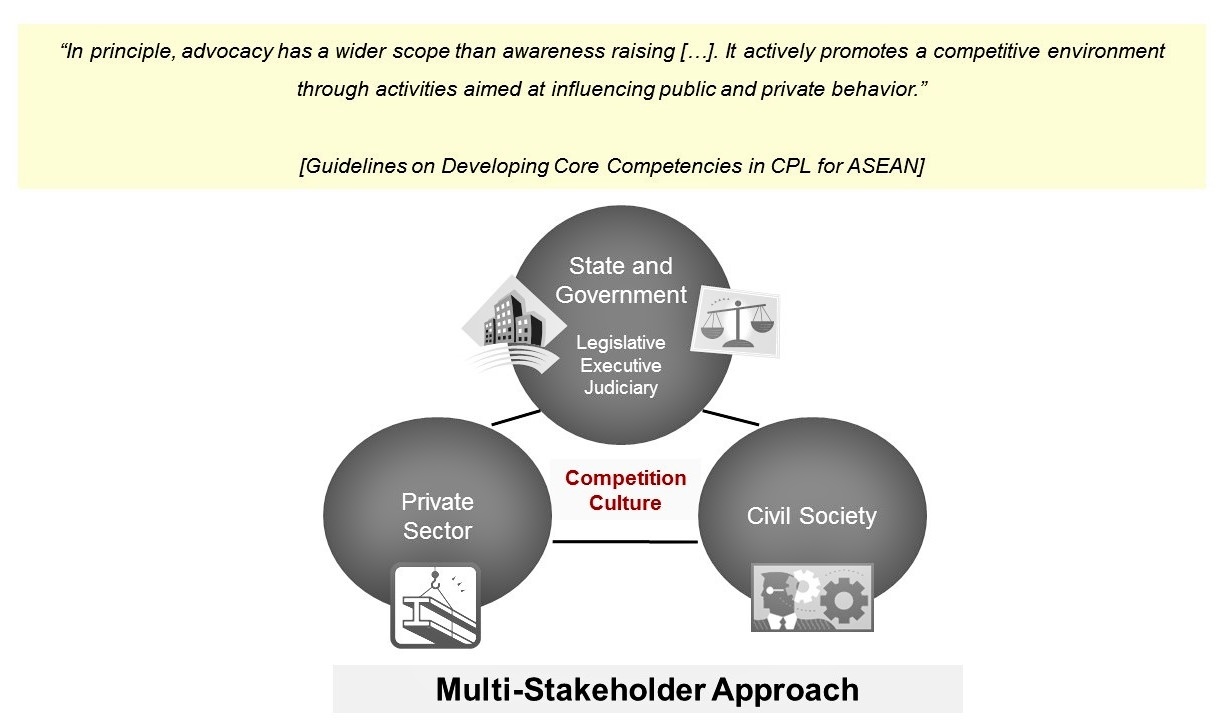Competition enforcement and advocacy are complementary and need to be appropriately balanced. Competition authorities not only need to take action against existing anti-competitve conduct, but their effectiveness also relies on preventing measures to promote compliance and enhance deterrence.
Moreover, Competition Policy and Law is not developed or implemented in an “ivory tower”, but requires the awareness and active engagement of various stakeholders. This is because market distortions and barriers to entry can occur due to practices (of companies) or policies (of government institutions).
In order to build a competition community and broad-based “competition culture”, it is therefore important to bring together government and the business community, academia, media and the general public in a multi-stakeholder approach.
Advocacy vis-à-vis Government Authorities
Improving inter-agency coordination and policy harmonization, by clarifying responsibilities of the competition agency and line ministries, sector regulators, judiciary etc.
Advocacy vis-à-vis the Private Sector
Enhancing business compliance, by facilitating corporate compliance and leniency programs, as well as private enforcement.
Advocacy vis-à-vis Civil Society
Strengthening non-state actors (consumer organizations, media) as watchdogs, advocates and educators for fair competition.
Encouraging academic research on emerging CPL issues and periodic reviews of the competition situation in a country or sector.
Anchoring CPL as a subject in universities, training institutions and think tanks, to qualify competition experts (researchers, staff of competition agencies, lawyers, judges).

